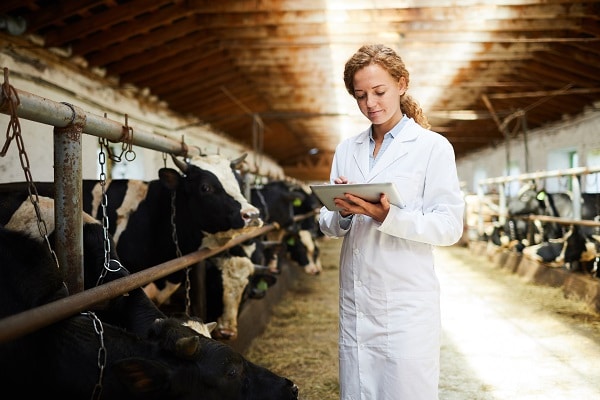The products that we use today, from the food we eat to the clothes we wear, are made using harmful chemicals. These products can affect your health and the health of individuals involved in their production adversely over the long term. It’s the reason why more and more people have started opting for an organic lifestyle today. Transitioning to an organic lifestyle doesn’t come easy. It involves making tough choices. And above all, organic products come at a costlier price tag. The question is – is making the switch really worth it?
You may have heard numerous times how organic products are so much healthier. But you might want to know why exactly you should choose to invest in certified organic products. If yes, you’ve come to the right place. This blog post highlights everything you need to know about certified organic products to make a more conscious and confident choice.
Contents
- 1 What Does Certified Organic Mean?
- 2 Organic Certifications and Labels to Look For
- 3 USDA Certification for Organic Foods
- 4 GOTS Certification for Textiles
- 5 FD&C Certification for Cosmetics and Personal Care Products
- 6 Buying Organic Products
- 7 Fruits and Vegetables
- 8 Poultry
- 9 Beef
- 10 Dairy Products
- 11 Packaged Foods
What Does Certified Organic Mean?
For a product to be considered organic, it needs to have a certified organic label. Being certified organic means that the product has been grown, processed, and packaged as per international guidelines that address factors like soil quality, pest and weed control, animal raising practices, and, most importantly, the use of additives. A product made following organic guidelines is said to contain only natural substances. It’s believed that these products have utilized only mechanical, physical, and biological farming methods instead of chemically-infused processes. In short, certified organic products are safer and healthier for the people involved in manufacturing and consumers.

Organic Certifications and Labels to Look For
Not all manufacturers that claim to sell organic products are actually true to their word. To be considered real organic, a product must have accreditation and certification from renowned and authentic global organizations. Without a label from any such organization, one can’t say for sure if the product they’re paying such a premium price is actually organic.
USDA Certification for Organic Foods
The most reliable and trustworthy organic label that you must opt for is the USDA. The organic products industry in the U.S. is regulated by NOP (National Organic Program), which comes under the Agricultural Marketing Service of the USDA. USDA has some of the most strict requirements when it comes to organic labeling of products. A product that holds a USDA organic certification is believed to be free from any GMOs (genetically modified organisms) and is known to be produced without any excluded methods like genetic engineering. The USDA organic standards are designed such that the final products contain only natural substances produced from organic farming. USDA standards prohibit the use of synthetic substances.
USDA has four categories under which they categorize all organic food products. These are 100% organic, organic, made with organic, and specific organic ingredients.
GOTS Certification for Textiles
Apart from organic food products, people are making tougher and more conscious choices today. Other than the food they eat, they’re also giving thought to what they wear. And with that, they’re on the lookout for textile products that come with authentic organic certification. All textiles, including bedding, clothing, towels, curtains, and upholstery, can be certified organic. If you’re one of these people, you should look for a GOTS (Global Organic Textile Standard) label on the product before you purchase it. GOTS is one of the leading standards around the world when it comes to organic textile processing. If a textile has been awarded a GOTS certification, it implies that the manufacturing fibers have thoroughly followed social and ecological criteria.
GOTS ensures that all practices involved in processing a textile comply with social and environmentally-responsible practices, from harvesting raw materials to processing to final manufacturing. With a GOTS label, a manufacturer can export its certified organic products worldwide, and the consumers can rest assured that they are using authentic organic products.
FD&C Certification for Cosmetics and Personal Care Products
The FDA regulation of all cosmetic and personal care products is made under the Federal Food, Drug, and Cosmetic Act (FD&C). As per the act, cosmetics include all of the products that are meant to be rubbed, poured, sprayed, or sprinkled on the human body or are meant to be introduced into the human body to beautify, cleanse, or alter the appearance of the person, promoting attractiveness. If you’re looking for organic cosmetic products, the FD&C label is what you should be looking for.

Buying Organic Products
When you buy organic products, you’re basically supporting healthier farming methods and practices beneficial for animals, soil, and the water supply in the long run. As we mentioned earlier, organic products are costlier. However, investing in all organic products doesn’t deliver the same impact. Some organic products provide an immediate benefit, while others don’t. So, if you’re planning to switch to organic products, it’ll help if you know which organic products you should prioritize.
Fruits and Vegetables
Investing in organic fruits and vegetables should be your priority. Organic produce means that they contain no synthetic pesticides or fertilizers and are natural through and through. They’re made from organic practices, and hence, all the substances and methods employed during their agriculture are in line with organic guidelines.
Poultry
The priority level of organic poultry is medium to high. Organic poultry implies that the poultry isn’t treated with any antibiotics or feed that’s unhealthy for the consumers.
Beef
Organic beef means that the cattle aren’t treated with any antibiotics. It also indicates that the major portion of an animal’s feed (about 99%) was based on grass and forage. Meat obtained from such animals is healthier than meat from animals that are raised through conventional practices.

Dairy Products
When it comes to dairy products, the priority level is said to be medium to high. Organic milk has approximately 60% more omega-3 fatty acids. Organic milk is obtained from an organic dairy that has not been treated with any growth hormones and is fed an organic diet.
Packaged Foods
Investing in packaged organic foods would deliver the least impact. Any packaged food made with organic’ means that about 70% of the ingredients in the food are organic. Organic packaged foods are specifically beneficial for children.
Won’t it be better knowing that the products we’re consuming are made through processes that don’t involve harmful chemicals and that the production hasn’t harmed any animals? Switching to organic products is a favor, not just for yourself but also for the soil and water of the earth in the long run. There’s no doubt that organic is healthier, and there’s absolutely every reason you should choose certified organic products!



Informative post.Thanks for following me.